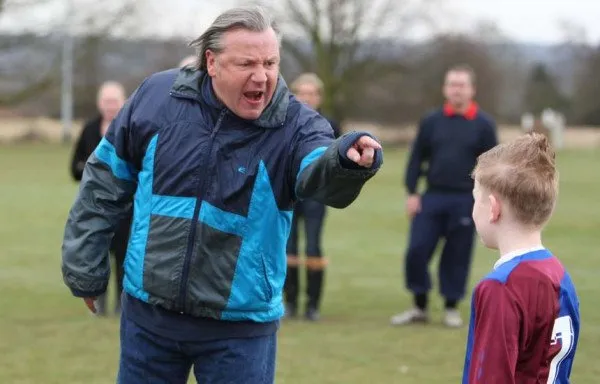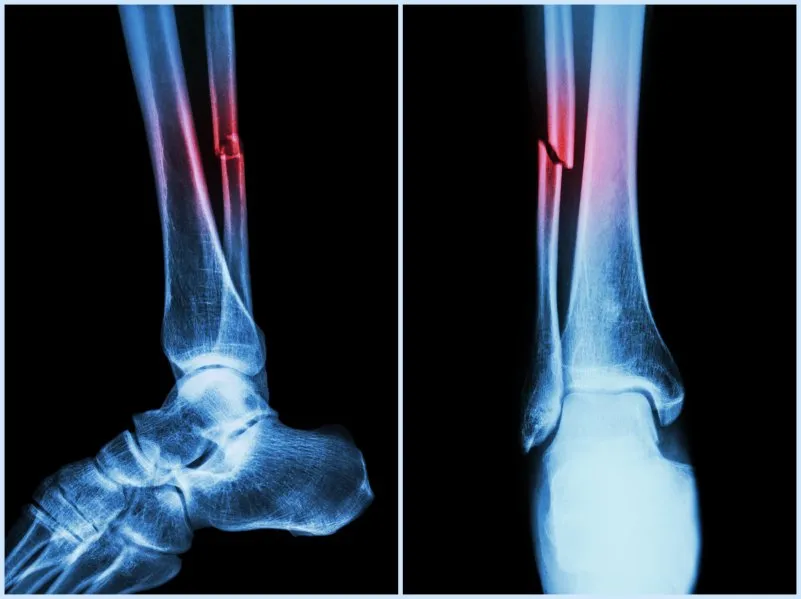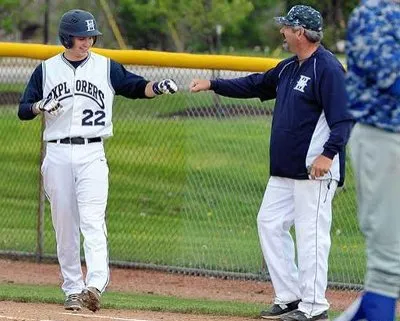
Athletics have always been a big part of my life and that is a very visible area where both negative and positive reinforcement are used. It isn't just for athletics though. These principles apply to business and life as well.
Negative Reinforcement
Up until college I primarily received more negative reinforcement than positive. My dad was particularly bad about this. I suppose he meant well in that he cared to be involved but a lot of it was more detrimental than positive. He really didn't know anything about sports but he would pretend to know and use fake physics and math to try to explain why something needed to be done a certain way. He would yell a lot at myself and my sister. It got really ridiculous to where we just didn't want to be around him at all. We always knew that the entire ride home from practice would just be him yelling and talking nonsense. We already knew he didn't know what he was talking about when we were 10 years old. Parents can be the worse offenders of negative reinforcement.

It wasn't just the parents though. Often times the general impression you get from the way high school football coaches should act is that they are real stern and are often times yelling. This is how my high school football coach was. He was very polarizing. Half the players liked him and half the players didn't really like him. Looking back on it I don't really know why I had respect for him. I almost got brain washed into respecting him in a lot of ways. It took a few years to 100% realize that a lot of his ideas and yelling was so far from the most efficient way to go about things despite some obvious situations that should have never happened.
My sophomore year one of the freshmen on the team broke his arm in a game and the head coach made fun of him and was humiliating him in front of the whole team telling him to toughen up and stop holding his arm.
The next day he returned with a cast on his arm.
The same scenario happened again my junior year. One of the seniors broke his fibula in the game. He was called a pussy and was told to stop limping around. Once again.........
Monday he comes to school with a cast on his leg.

These are egregious examples and it is sad to say they really happened.
Here are a few other examples I have witnessed first hand that are completely ineffective and ridiculous examples of negative reinforcement.
Not Letting Athletes Drink Water As Punishment
This is so insane and aggravating to me it is unbelievable. So you are going to run them into the ground and get them dehydrated so they end up pulling a muscle? How is that going to help you win games?
I always tell the kids that I coach anytime they need to drink water they need to let me know even if we are in the middle of a drill. It is very easy to get dehydrated in Arizona and heat strokes and pulling muscles from dehydration can happen very fast. The purpose of the training is to prepare for competition. If you are injured then you will never get to really compete.
Using Exercise As Punishment
You often see this when the coaches make athletes run because they didn't do something right. Clearly if you are playing a sport that involves running then doing sprints is part of the normal training. Not punishment.
Even worse than that is making someone do pushups for not doing something bio-mechanically correct. Let's take for instance that you are teaching a kid proper pitching mechanics. If they mess up and don't throw a strike how is it going to improve their mechanics to have them do pushups? That is so stupid but unfortunately some people try to coach this way.
Yelling or Punishing Athletes For Messing Up In A Game
This makes athletes more likely to lose confidence and mess up more. Especially when it is a physical error it shouldn't be punished by yelling at them. For instance if they strike out in a baseball game or miss a tackle in a football game.
If you are going to talk to them about it use the opportunity to point out something to look for. For instance. If the pitcher in a baseball game does something slightly different when they throw their curve ball that clues the hitter into what he is throwing focus on that and don't yell or act aggressive when you are talking to them.
Ways I Display Positive Reinforcement To Athletes
It wasn't until college when I realized that positive reinforcement was the superior way to coach. My event coach for Track and Field was always 100% positive in his coaching methods. He always built his athletes up mentally and gave everyone equal attention. He commanded 100% respect from his athletes. There was no one he coached that didn't respect him.
I really built off of that when I started coaching and continually built my athletes up and always let them know that they were always improving and that they were outworking the competition.
I will say things like, "This is light weight for you! You are a beast man.....you got this!" "You are a next level player!" "Your ability is very rare." "Nobody is working as hard as you. They just kind of want it but that won't be good enough against you."

Talking like this to the athletes throughout training builds up their confidence and just by doing the training they will experience gains which makes them believe more in their ability. Overtime this really adds up and puts them on a higher level.
Should You Ever Use Negative Reinforcement?
Personally I'm typically not in a situation where I would ever need to use it. Most of my coaching is on an individual level with very serious advanced athletes so they are putting in maximum effort and not goofing around.
In a team environment the only real reason I can see the need for getting upset with the team is if people are just totally screwing around and not taking the practice or workout seriously.
It isn't worth my time to coach anyone that doesn't want to be there. That is why I personally prefer to coach college athletes or advanced high school athletes.
If someone does something incorrect instead of using negative reinforcement it is best to target the issue and do drills that will train their muscle memory to perform the action without thinking.
When it comes to game time everything for the most part needs to be reactionary and they don't need to be thinking to much about mechanics or the finer details. That will just cause paralysis by analysis if they think too much.
Play To Have Fun No Matter What
I always tell the kids I coach that playing sports at any level is to have fun and if they aren't having fun then there is an issue. I tell them this goes for the highest paid professional athletes as well. Lebron James had a lot of fun winning the NBA Championships this year. Usain Bolt had a lot of fun again this year at the Olympics. Usually when a highly paid athlete isn't having fun is when they are injured or in a slump. Everyone wants to perform well all the time and no matter how much you are paid.
Rule 1 through 10 of sports is to HAVE FUN!
Positive Reinforcement In Life
I am a firm believer that being involved in athletics can benefit a person in a lot of different ways. Achieving goals can be greatly enhanced by going through the process of athletic training. Having a strong mental platform from reaching goals and completing things can carry over to business goals and negotiations.
I personally utilize the same mental strategies I use when I'm coaching athletes. I tell myself that I can do it and that nothing phases me. If any bad thing happens to me I make it a point to tell myself it doesn't even matter. For instance the back light on my dash components in my car went out a couple days ago.
I just told myself that I have blue eyes that collect more light so I can pretty much see in the dark like a cat! It's not even a big deal at all.
Some people really get down on all these little things and it builds up and people think their whole life sucks. It just isn't the case.
Don't let the little things phase you!

Thank you for reading my post and please consider upvoting it and following my blog @brianphobos